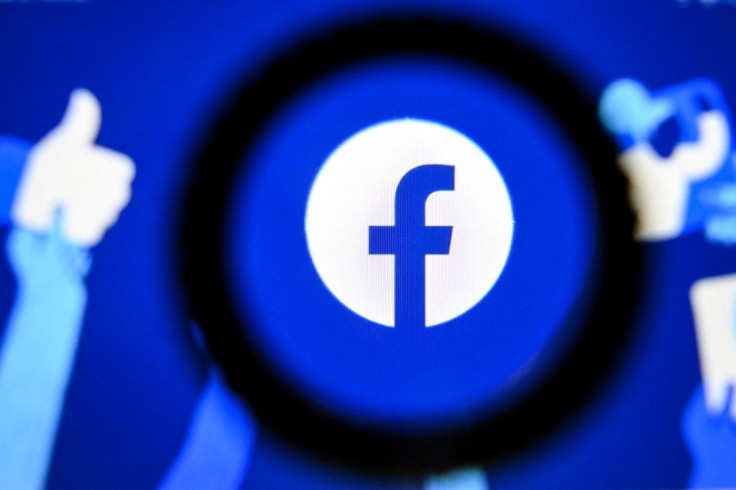
As part of the social media giant's way to be a safe platform, Facebook has banned seven companies that were spying on about 50,000 users.
Surprisingly, one of the said companies used fake identities to exploit several people.
Facebook Bans 7 Spying Companies
In a recent blog post by Facebook, seven "surveillance for hire" firms that targeted at least 50,000 people throughout the world have been banned by the social media giant. Aside from the said companies, more than 1,000 accounts linked to these businesses were also blocked by the corporation.
To give further definition of what surveillance-for-hire is, Facebook stated that the worldwide surveillance-for-hire sector collects information from individuals across the internet, manipulates them into revealing information and compromises their devices and accounts.
These businesses are part of a vast sector that sells invasive software tools and surveillance services to everyone, regardless of their target or the violations of human rights it causes.
This industry distributes these dangers by providing people with access to government and non-government organizations since some may not even have access to them.
The said seven spying companies which Facebook banned are Cobwebs, Cognyte, Black Cube, Bluehawk CI, BelltroX, Cytrox, and an unknown company in China, per Engadget.
7. Cobwebs
The social media giant deactivated around 200 accounts maintained by Cobwebs and its clients across the world.
This company, based in Israel with offices in the United States, sells access to its platform, which allows for internet surveillance through Facebook, Instagram, WhatsApp, Twitter, Flickr, public websites and "dark web" sites.
"Our investigation identified customers in Bangladesh, Hong Kong, the United States, New Zealand, Mexico, Saudi Arabia, Poland, and other countries," Facebook furthered.
6. Cognyte
Facebook deactivated roughly 100 Facebook and Instagram profiles associated with Cognyte and its clients. This Israeli company provides access to its platform, which allows users to manage fake profiles on social networking sites.
Read also: NASA Hubble Telescope Picture Shows Stunning Discovery in Massive Black Hole: What Is That Mini-Jet?
Users from Israel, Serbia, Colombia, Kenya, Morocco, Mexico, Jordan, Thailand and Indonesia were discovered to be using the service throughout the study. Journalists and politicians from all around the world were among their intended targets.
5. Black Cube
Black Cube used fictional personas to target specific audiences, including graduate students, NGO and human rights activists, and film and television makers.
4. BellTrox
BellTroX is a company established in India that provides "hacking for hire" services.
Almost the same with Black Cube, BellTroX used phony accounts to impersonate prominent people to get their email addresses which will be used in the phishing assaults.
3. Cytrox
This North Macedonian firm creates and sells spying tools that allow its customers to infiltrate iOS and Android devices.
This Facebook-banned company has customers in Egypt, Armenia, Greece, Saudi Arabia, Oman, Colombia, Côte d'Ivoire, Vietnam, the Philippines and Germany.
2. BlueHawk CI
To deceive their targets into providing an on-camera interview, BlueHawk CI creates phony accounts pretending to be journalists working for existing media companies.
1. China-based Spying Company
Facebook's security experts discovered this unknown company in China creating surveillanceware and uses face recognition technology.
The researchers at Facebook didn't identify who was behind the organization, but they did indicate the program had been used by "domestic law enforcement" in China.
How Does Facebook Spying Works?
The social media giant explained that the banned companies executed three phases of targeting activity that made up their "surveillance chain." The said phases are reconnaissance, engagement and exploitation.
Some of the Facebook-banned companies focus on a single step of a phase, while others utilize the complete attack chain.
Reconnaissance
In this phase, targets are secretly profiled by cyber mercenaries on behalf of their clients, which frequently use software to automate information gathering across the internet. It gathers data from a variety of online sources, including blogs, social media and knowledge management systems.
Engagement
This process is usually the most noticeable to its targets and the most important to detect to avoid compromise. Its goal is to contact the targets to gain confidence, gather information and fool them into clicking on dangerous links or files.
Exploitation
This final stage is commonly known as hacking for hire. It generates phishing domains designed to deceive people into giving away their credentials to sensitive accounts.
For instance, the companies Bluehawk CI, Black Cube and Belltrox use these three phases. Meanwhile, Cobwebs and Cognyte utilize Reconnaissance and Engagement.









